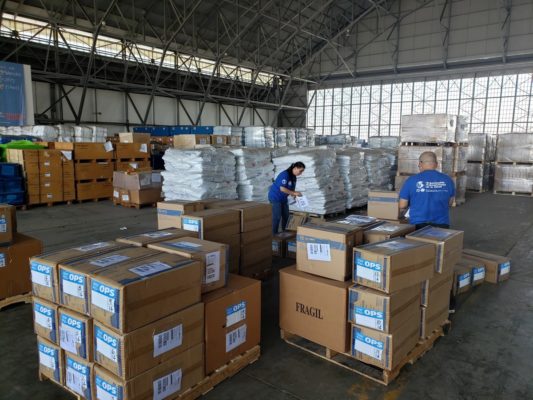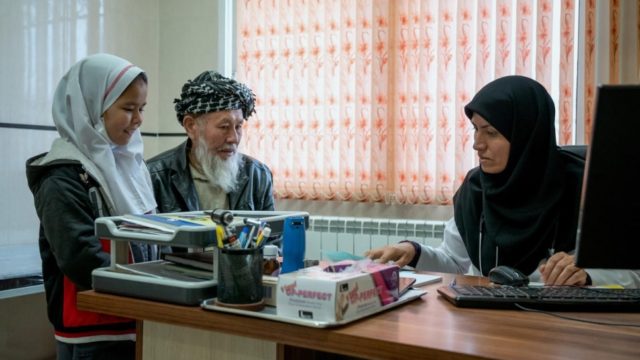
A Syrian refugee queues up to collect her winter cash assistance at Azraq camp, Jordan. © UNHCR/Mohammad Hawari
This is a summary of what was said by UNHCR spokesperson Babar Baloch – to whom quoted text may be attributed – at today’s press briefing at the Palais des Nations in Geneva.
UNHCR, the UN Refugee Agency, released today its supplementary appeal for 2021 Covid response seeking an additional $455 million.
While most of the pandemic-related activities amounting to $477 million have been already mainstreamed and included in UNHCR’s 2021 Global Appeal totaling $8.616 billion, the supplementary Covid-19 response released today focuses on exceptional socioeconomic and protection impacts related to COVID-19 as millions of refugees, internally displaced and stateless people fall into conditions of extreme hardship.
Monitoring carried out by UNHCR since the onset of the pandemic paint a bleak picture of the well-being and protection of refugees and others of concern, with 74% of them now able to meet only half or less of their basic needs, and 83% engaging in one or more negative coping mechanisms to meet their basic needs.
Response to these needs is ranked in six priorities within the supplementary appeal and include efforts to reducing vulnerability through cash assistance; use of cash to help meet basic needs and facilitate access to services; protection of incomes and livelihoods through consumption support to the most vulnerable and their entrepreneurial efforts; prevention and response to gender-based violence (GBV), in particular strengthening the availability, accessibility and quality of GBV case management; promotion of mental health and psychological well-being through training the first line responders.
Prioritised activities also include communication and engagement with communities and non-traditional partners with the aim of prioritizing accountability to affected people and risk communications and community engagement. Restoring education is another priority and these activities include safe reopening of schools in accordance with health protocols, mitigating learning loss through investing in online and offline distance education and support for the most vulnerable through unconditional cash grants for the most vulnerable, in particular for adolescent girls.
In addition, a limited number of critical health, WASH and shelter activities that could not be mainstreamed into regular programming are included, as well as a small global stockpile of key items to respond rapidly to needs and safeguards shortages of PPE or instability on global markets. The supplementary appeal also aims to ensure UNHCR’s capacity to respond to major new COVID-19 outbreaks in 2021 and provide logistical support where necessary for the delivery of vaccines to forcibly displaced populations.
UNHCR is grateful for all the contributions received from both the government and private sector supporters. Our 2020 COVID-19 appeal for $745 million was funded at 64%. In all, donors have so far committed over $1.1 billion for UNHCR’s programmes in 2021 and beyond, showing strong solidarity with refugees and confidence in UNHCR’s work.
For more information on this topic, please contact:
- In Geneva, Andrej Mahecic, UNHCR, mahecic@unhcr.org, +41 79 642 9709
- In New York, Kathryn Mahoney, mahoney@unhcr.org, +1 347 443 7646





